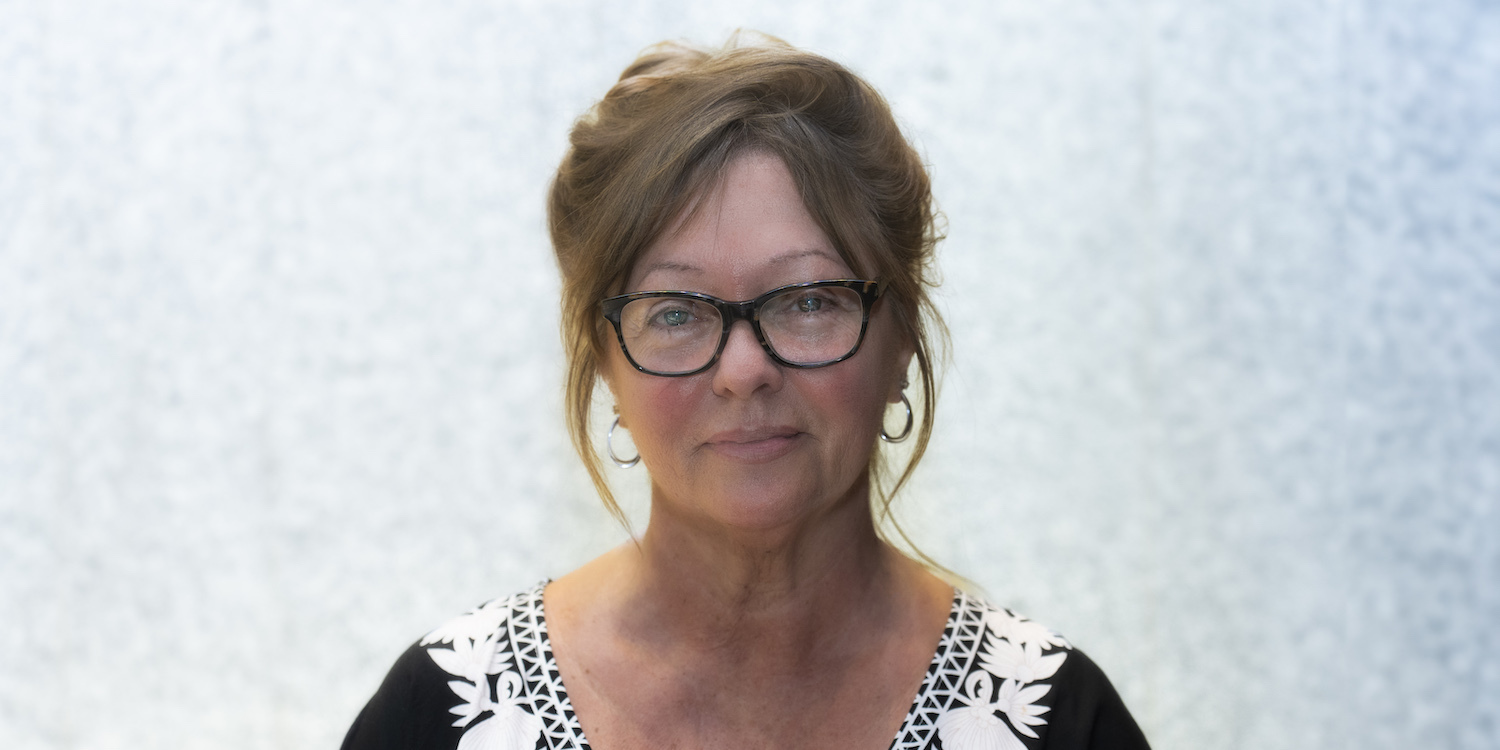Charlene O’Hanley’s approach to democracy education is as unique as the context in which she teaches.
An educator of 30 years, O’Hanley recently came out of retirement to return to a school she had taught at for two decades — a small English-language adult education centre in Lachute, Quebec.
Lachute, which has a predominantly English-speaking population, is one of the lowest-income regions in Canada and also has one of the country’s lowest high-school graduation rates, at 50%.
O’Hanley’s students come from a wide range of backgrounds, and she provides every opportunity she can to help them develop a sense of agency.
“I’m a very optimistic person and it is my hope that these students who come from impoverished places, through a cycle of welfare and not a lot of dreaming or thinking they can attain goals, that they come for a little school and get excited about something and realize that they can make a difference,” she says.
She is proud, for example, of a recent student-led accomplishment, the establishment of a Gay-Straight Alliance, which will come with a physical space students can use, funded by a small grant. “We wrote a beautiful proposal, what we wanted in our school, and we just found out that we were accepted so we’re very excited,” she says.
Lachute CDC is small, with two teachers and only 30 students, who can range in age from 16 to 60+. (O’Hanley may be the only high-school teacher who can say she had a grandmother and granddaughter in her class at the same time!)
In recent years she has seen a shift in the age demographics, with fewer older adults returning to complete their diplomas and more teenagers enrolling who haven’t thrived in the regular system.
“Now it’s really more of an alternative high school,” she says. “Adult education attracts a lot of artistic students. I have a lot of writers and musicians, and real artists. For some reason, they just didn’t fit into the mold.”
The school offers students a lot of choice — over their schedules and subject priority, or they can create projects, such as doing volunteer work, for credit — which O’Hanley sees as being fundamentally democratic, and an opportunity to reinforce democratic values with students.
It is my hope that these students who come from impoverished places, through a cycle of welfare and not a lot of dreaming or thinking they can attain goals, that they come for a little school and get excited about something and realize that they can make a difference.
While she used to teach history, the course was dropped from the adult curriculum, so now she teaches English and incorporates civics at every opportunity. Listening and debate skills have to be evaluated, so she routinely organizes discussions of current events as part of day-to-day democracy education.
O’Hanley recalls one time when Parliament was debating medically assisted dying, so her students did the same in class. The mix of ages in the room heightened the tension but also enriched the discussion.
“I had some older students who had really different opinions, and maybe a little more thought-out than an impetuous 16-year-old might have,” she says. “The younger students were saying, ‘Let us do what we want to do, it’s our body, our choice.’ They didn’t really want to hear about the slippery-slope argument the older students tried to get at.”
“It got a little heated, but it turned out okay, because we’re not trying to change anyone’s mind. We were just expressing our own thoughts and seeing the outcome. In the end, I think we just gave them some food for thought, the younger ones.”
Among other activities, O’Hanley once took a group of students on a memorable trip to Ottawa to see the Budget Speech, at CIVIX’s invitation.
“That was really something because some of our students have never been out of Lachute, so to go to Ottawa was huge,” she says. “They were starstruck by the politicians. Justin Trudeau was there and to see him in person, that was really something. This is when we had history and we would talk about Pierre Elliott Trudeau and then how his son took over. It was very meaningful to them.”
O’Hanley, who has been involved with CIVIX since 2012, sees civic education programs as essential in engaging students as citizens.
“They give a voice to students who might question, ‘Why should I vote? What difference does it make? But I’m always coming back to the power of one,” she says. “They don’t realize what a difference one person can make. I’m trying to instill in them that they can get out there and create the world they want.”
At a Glance
Name: Charlene O'Hanley
Location: Lachute, Quebec
Grades Taught: High school
Subjects Taught: English
Years Teaching: 30
Years Involved with CIVIX: 12
CIVIX programs used: Student Vote, Student Budget Consultation, Rep Day
Key Motivation: “To help create a better, more inclusive world. I want people to be better and do better, because we are equal — nobody's better than anyone else.”
